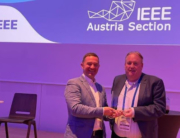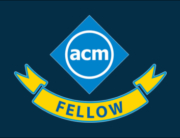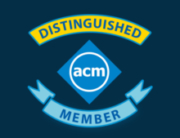To celebrate IFIP’s 60th anniversary, we are putting together a series of 10 virtual panel events
featuring members and associates of IFIP and showcasing the interesting and impressive work they
do. Events in the series will consist of four or five panelists and a moderator presenting for an hour
and fifteen minutes, and will run from 30 August to 6 December 2021.
We would like to invite you to the following panels over the next several weeks:
The Silent Revolution: Software as the Technological Fabric of Society
30 August 15:00-16.15
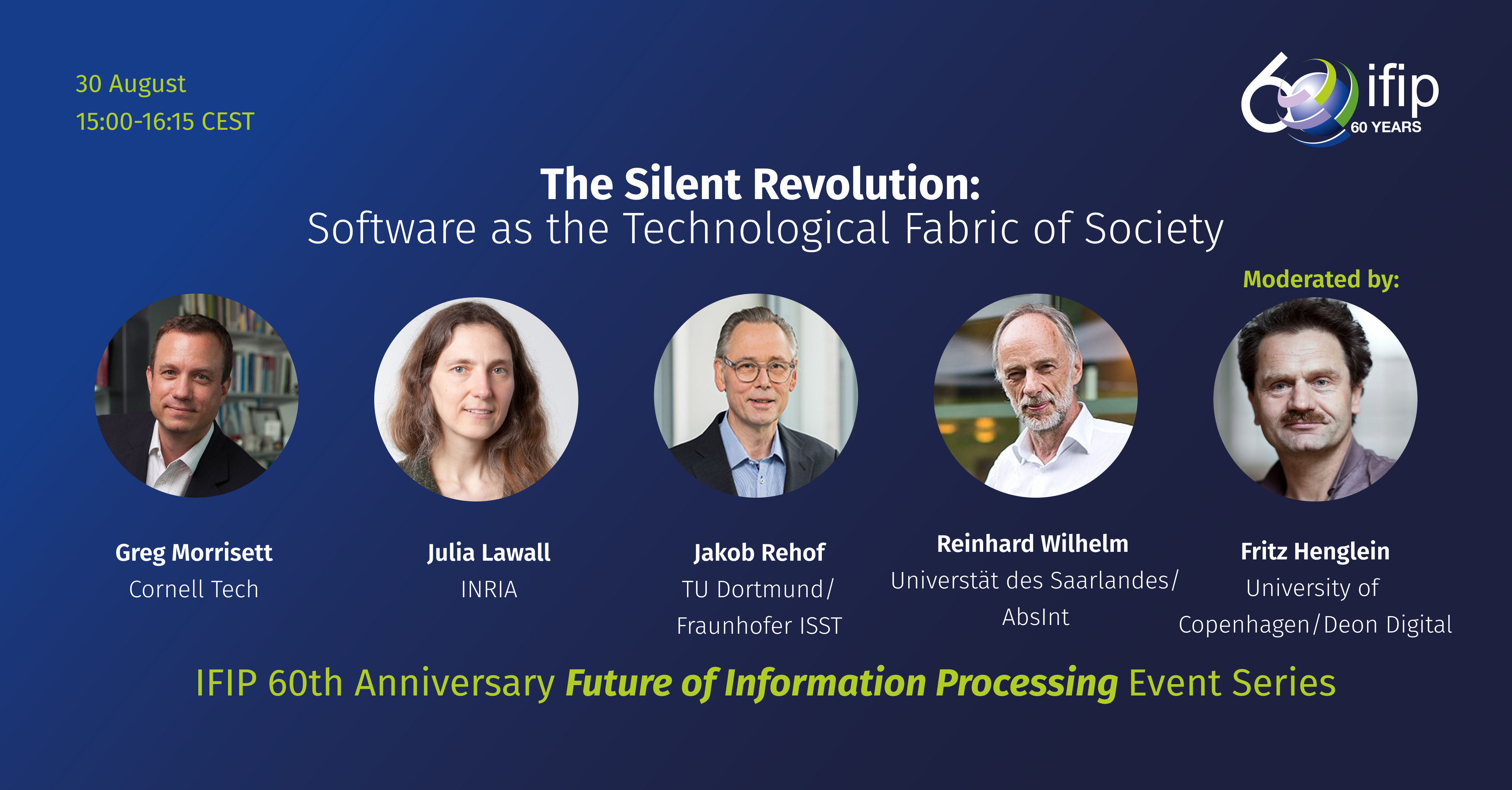
Software has been at the center of a silent revolution: from an ancillary role to computer hardware,
it has emerged as the technological fabric of a globally interconnected society. This has been fueled
by generally unnoticed, yet visionary under-the-hood advances in software theory and practice at
academic and industrial institutions, fostered by IFIP’s provision of long-term technical fora.
In this session, thought leaders from academia and industry will discuss the role and impact of
principled design, methodology and implementation of high-level programming languages in this
silent revolution. They will reflect not only on the increasingly severe demands on software safety,
security and productivity in today’s systems, but also on advancing languages and their algorithmic
calculi, formal verification, automated analysis and synthesis as under-the-hood facilitators of
tomorrow’s artificially intelligent, data-driven, robotic, interconnected-device-based, decentralized
and parallel systems.
For more information and to sign up, click here
Digital Twin for Cyber-Physical Production Systems
13 September 14:00-15.15 CEST
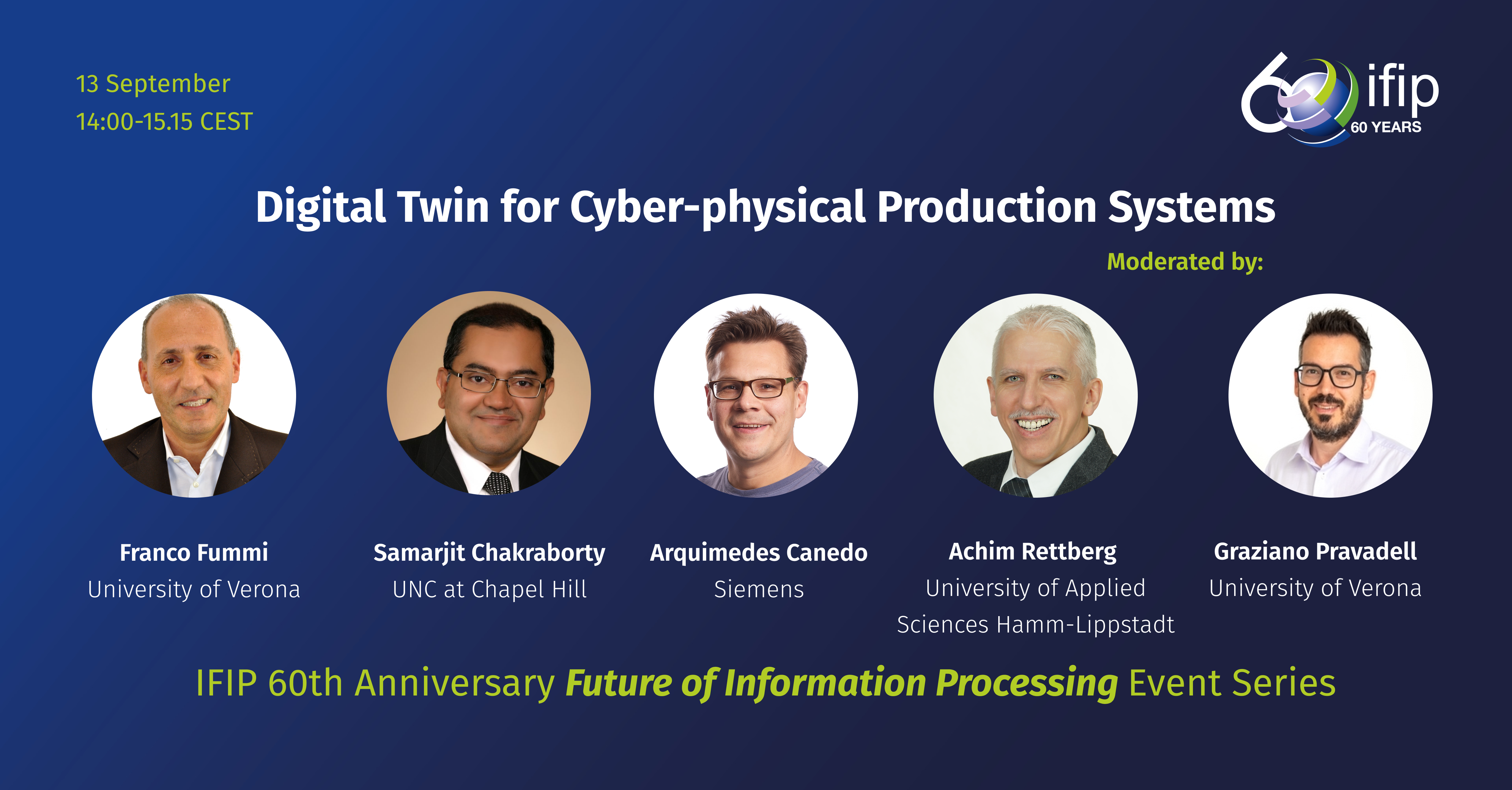
Cyber Physical Systems (CPS) are one of the pillars for the new industrial revolution, which is marked
by the decentralization of production processes as well as the proliferation of interconnected
intelligent devices throughout the production and logistics chain.
Embedded computers and networks monitor and control the physical processes with feedback loops
in which physical processes affect computations and vice versa. An industrial automation system is
an example of CPS where computational elements control and automate the execution of physical
processes in industrial plants.
Thus, it is clear the need to connect physical objects to information associated with these objects in
the cyber world. In CPS, for each product, machine or equipment, a virtual (logical) representation
needs to be developed with its actual physical description. This process is known as virtualization
and its product, the digital twin, is one of the consequences of Industry 4.0.
More information and sign-up are available here
Strategic Collaboration of Certification and Education on Data Science
27 September 15.00-16.15 CEST
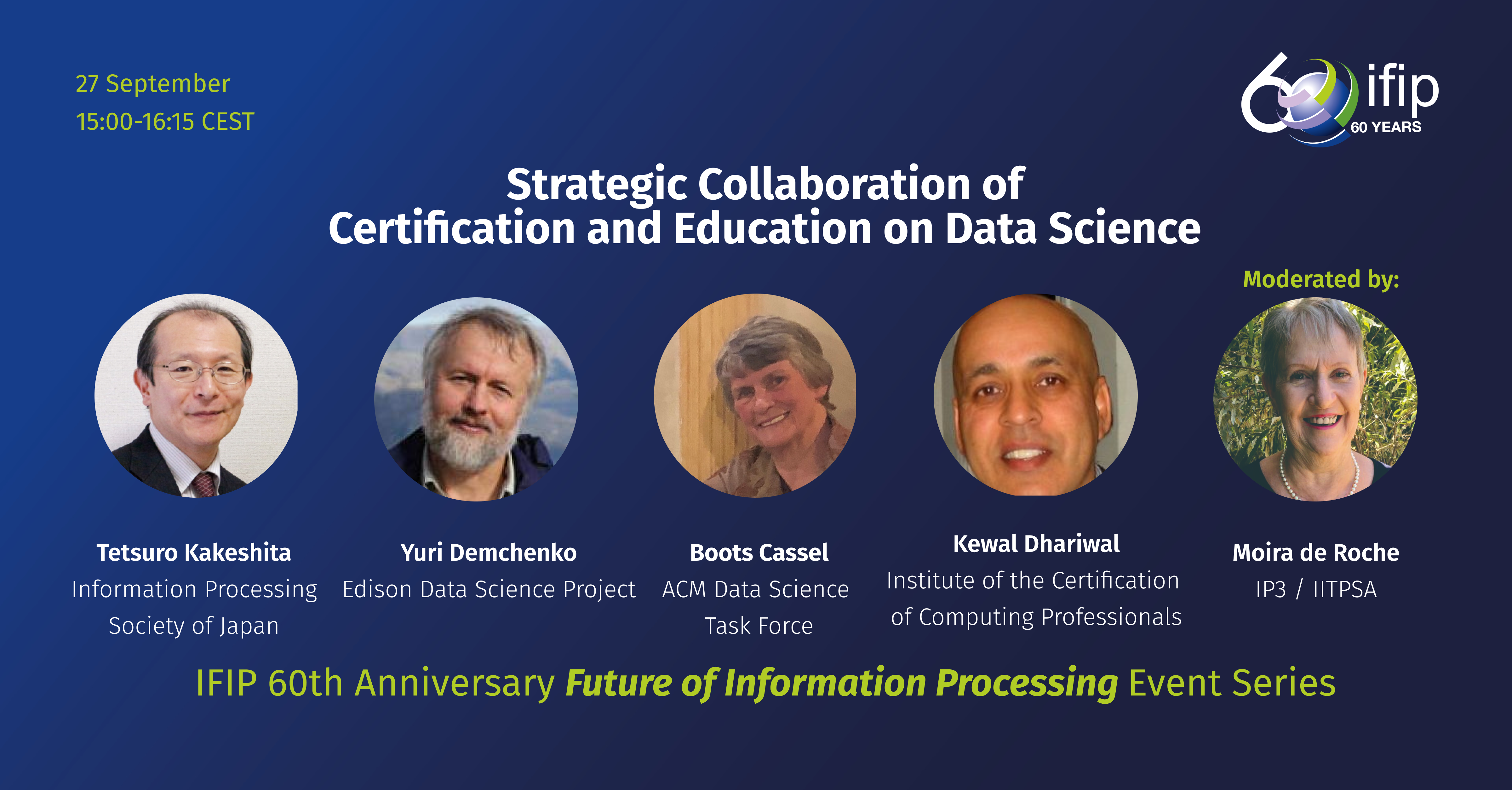
This session will introduce recent developments around the globe in education and certification in
data science. The COVID-19 pandemic has propelled digital transformations such as online education
and telework. Such digital technology can accelerate mutual collaboration among data science
educators, leading to an ecosystem suitable for providing data science training for people at all skill
levels.
More information and sign-up link will shortly be available here
IFIP Code of Ethics and Professional Conduct: A Document for its Time
4 October 15:00-16.15 CEST
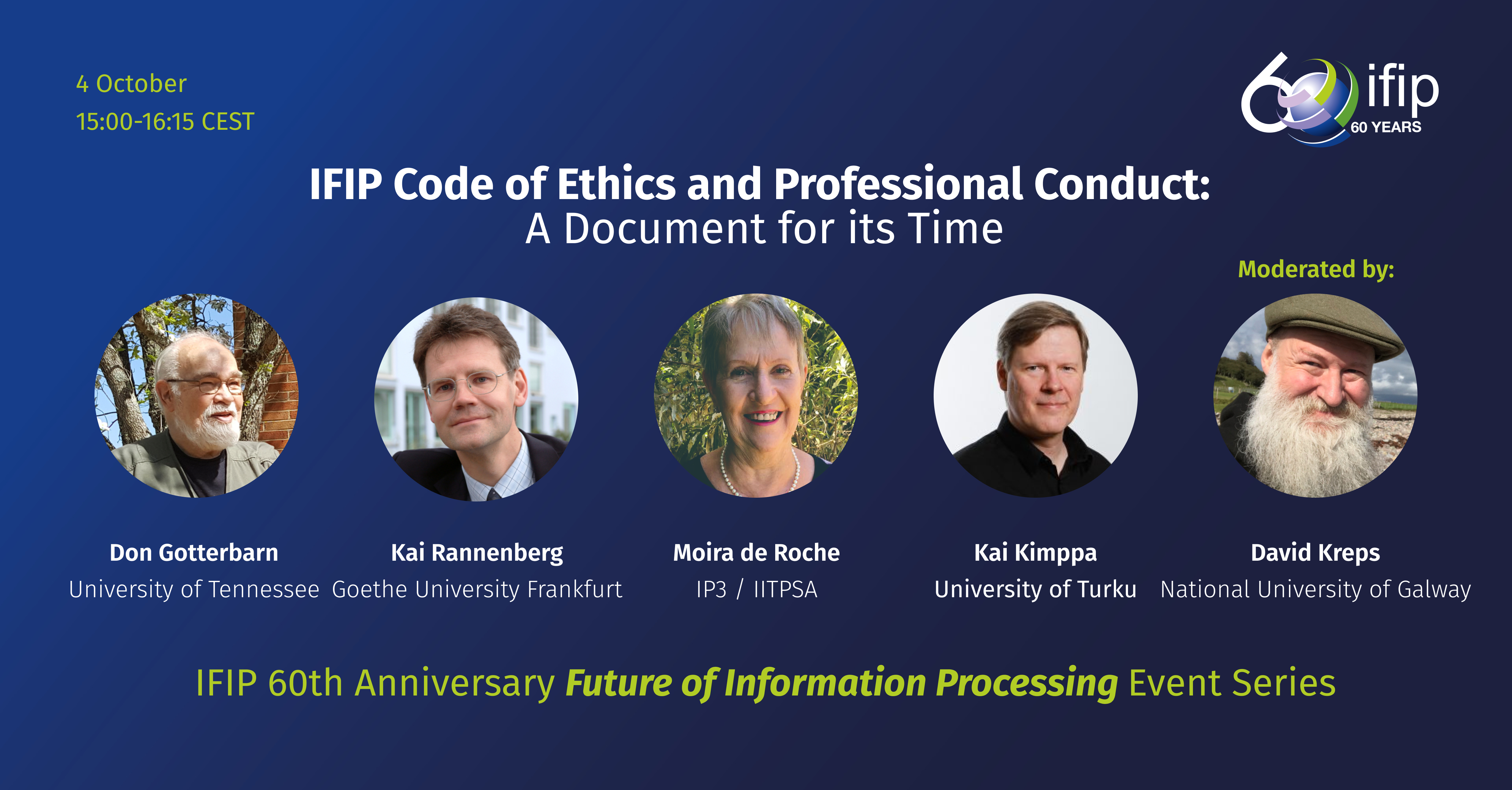
In this session, some of the creators of the IFIP Code of Ethics and Professional Conduct will gather
to talk about the Code’s importance. In today’s rapidly transforming digital landscape, it is vital to set
explicit boundaries and outline clear values. To quote from the Code’s preamble: “The entire
computing profession benefits when the ethical decision-making process is accountable to and
transparent to all stakeholders. Open discussions about ethical issues promote this accountability
and transparency.
For more information and to sign up, click here


